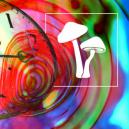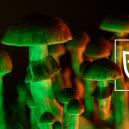What Are Smart Drugs?
Published :
May 8th, 2018
Categories :
Products

Biohacking, smart drugs, and nootropics are all concerned with enhancing human performance. This can be achieved with naturally occurring products, synthetics, or a combination of both. Plant-based smart drugs are generally unscheduled. Synthetics are usually prescribed by a physician or used outside the sphere of medicine and the law.
AUGMENTING THE HUMAN CONDITION WITH NOOTROPICS
In an age of true global competitiveness, getting that edge in school, work, or play can make a big difference. Smart drugs are consumed for a number of reasons—for increasing awareness and special acuity, enhancing long and short-term memory, stimulating creativity, and boosting concentration. Smart drugs are one of the fastest growing industries in the world with consumption rising at a rapid pace in recent years.
Studies investigating the efficacy of smart drugs are few. Anecdotal accounts of their performance enhancement capabilities, however, are widespread. The best proof is signified by the rise in their popularity through peer-to-peer testimonials. Knowing your smart drugs is the best place to start; below is a list of 10 commonly used natural and prescribed smart drugs, which could give you that edge you’ve been looking for.
#1 TYROSINE
Tyrosine is an amino acid used for alertness, focus and memory enhancement, and accelerating the ability to solve problems creatively. Military studies have shown that under extreme stress in a military setting, healthy individuals that take tyrosine supplements display improved memory, focus, and alertness. Side effects may include fatigue, heartburn, nausea, headaches, and joint pain.
#2 NICOTINE
Nicotine is a naturally occurring compound in a number of plants and is easily synthesised. In small doses, far less than the amounts ingested while smoking, nicotine can be a powerful nootropic. Nicotine has stimulating effects on mitochondrial energy; substances that boost mitochondrial energy also boost brain function.
The use of nicotine will require substantial research before healthy use—far more information than can be practically covered here. Before slapping on a nicotine patch and expecting to be a genius by morning, begin here and expand your overall understanding.
#3 BACOPA MONNIERI
Bacopa is a small water plant native to India. It isn’t quite understood how it works, but it is known that it does. It takes up to four weeks to take effect, so if you are taking bacopa, stick with it for a month. A number of products include bacopa, but it is usually in too small a quantity to be effective.
Bacopa has been observed to enhance attention and mood in people over 65, and improves memory in healthy adults. It is an adaptogen, which means it helps the body adapt to stress. Take at least 750mg daily of bacopa with a fat source for full effectiveness and absorption. It does reduce sperm production in male mice, so avoid bacopa if you are trying to conceive. It does not affect testosterone production or sex drive.
Frequent use may cause dry mouth, fatigue, nausea, and cramps. It can slow the heart rate, so people with bradycardia need to think twice. It may also worsen some lung, thyroid, and urinary tract conditions.
#4 ASHWAGANDHA
Ashwagandha or Indian ginseng is a member of the nightshade family, and is a common medicinal herb in Ayurvedic medicine. The biohacker will want to use it for anxiety and increasing focus. Limited human studies have shown an effective reduction in anxiety. Ashwagandha can impact pre-existing conditions like low blood pressure, stomach ulcers, and thyroid disorders.
#5 CREATINE
Creatine is an organic acid common to the healthy cell and brain function of all vertebrates. It facilitates the recycling of adenosine triphosphate in muscle and brain tissue. Creatine is used as a biohack supplement to enhance mental function in sleep-deprived adults, also to improve overall performance completing difficult cognitive tasks. If used in excess, creatine can cause anxiety, gastrointestinal issues, and weight gain.
#6 DONEPEZIL
Donepezil is an acetylcholinesterase inhibitor used in the palliative care of Alzheimer’s patients for improving cognition and behaviour. The biohacker uses it to improve memory and help complete complex tasks. In a singular, well-known trial, healthy pilots taking donepezil experienced improved procedural memory. This is the type of memory that allows us to walk or ride a bicycle. Taking donepezil can cause sleep problems, vomiting, appetite loss, and other serious side effects.
#7 ADDERALL
Adderall is an amphetamine and dextroamphetamine approved by the FDA for one purpose only: to treat ADHD. It can become addictive with overuse, yet the benefits outweigh the risks for many off-label biohackers. Adderall is used as a study aid or to stay alert in high-pressure jobs. Adderall enhances long-term conscious memory as opposed to procedural memory. Explicit memory is certainly enhanced, but there are few studies on its direct effects on other executive brain functions.
Adderall has both common and severe side effects. Sweating, anxiety, sleeplessness, loss of appetite, nausea, weight loss, and lack of libido are common, with the risk of psychosis, heart attack, and even sudden death possible with overuse.
#8 ANIRACETAM
Aniracetam is in a class of synthetic drugs called racetam nootropics. They were developed by Russia as a psychotronic weapon during the Cold War.
Today, these drugs are usually used to boost cognitive function in the elderly with mild cognitive impairment (MCI). This disorder, marked by language and planning problems, is more severe than mere “senior moments”, but not as consequential as Alzheimer’s. The biohacker uses aniracetam to reduce anxiety and nurture creativity.
Aniracetam is not FDA approved, so little legitimate study has been performed. Independent, off-script bloggers report side effects of vertigo, anxiety, nausea, and jaw tension.
#9 L-DEPRENYL
L-Deprenyl is a monoamine oxidase (B) inhibitor used to control the early symptoms of Parkinson’s disease. When used in larger doses, it loses its specificity and inhibits monoamine oxidase (A). As a transdermal patch, it is used to treat depression.
L-Deprenyl is used by the biohacker to help boost attention and mood, and to facilitate planning. Studies show that it can stimulate cognitive function in traumatised brains, such as that of stroke sufferers. MAOIs are also used as last-resort antidepressants.
MAOIs should be avoided when using a number of other drugs, especially those containing phenethylamines. Some foods such as cheese can react badly to MAOIs and trigger sudden high blood pressure.
#10 MODAFINIL
Modafinil is a prescription medicine used clinically to treat a number of sleep-oriented disorders including narcolepsy, shift work sleep disorder, and daytime tiredness from sleep apnoea. The biohacker uses modafinil for focus, motivation, clarity, and memory enhancement. It enhances dopamine release, but binds differently to the receptor compared to other psycho-stimulants like cocaine. This novel feature prevents addiction and withdrawal symptoms.
This schedule IV drug is prescription only, but off-script generic products are available internationally. It is important to stop taking modafinil if any side effects occur. These can include vomiting, fever, sore throat, numbness with pain, or easy bleeding and bruising.
DIET
Getting one’s diet on track should be the first order of business before plunging into the world of nootropics/smart drugs. Providing the human organic machine with exactly what it needs and avoiding toxins can enhance performance substantially—both physically and cognitively. Life can be extended with a nutritious diet and plenty of water. Healthy diet types are many, and encompass a number of different lifestyle philosophies. Becoming fit and healthy allows nootropics to act most effectively on the human organism. There’s no point trying to run 4K on a cathode ray tube.
A RISING SUBCULTURE
Nootropics are being exploited by Silicon Valley brainiacs, medical interns, and university students to heighten their experience of reality. Nootropics can boost brain function under stress, increase mental stamina, and enhance information retention for longer periods of time. In competitive fields like coding and share trading, or in high-pressure learning environments, smart drugs are becoming normalised as individuals seek to boost their performance capabilities.




















